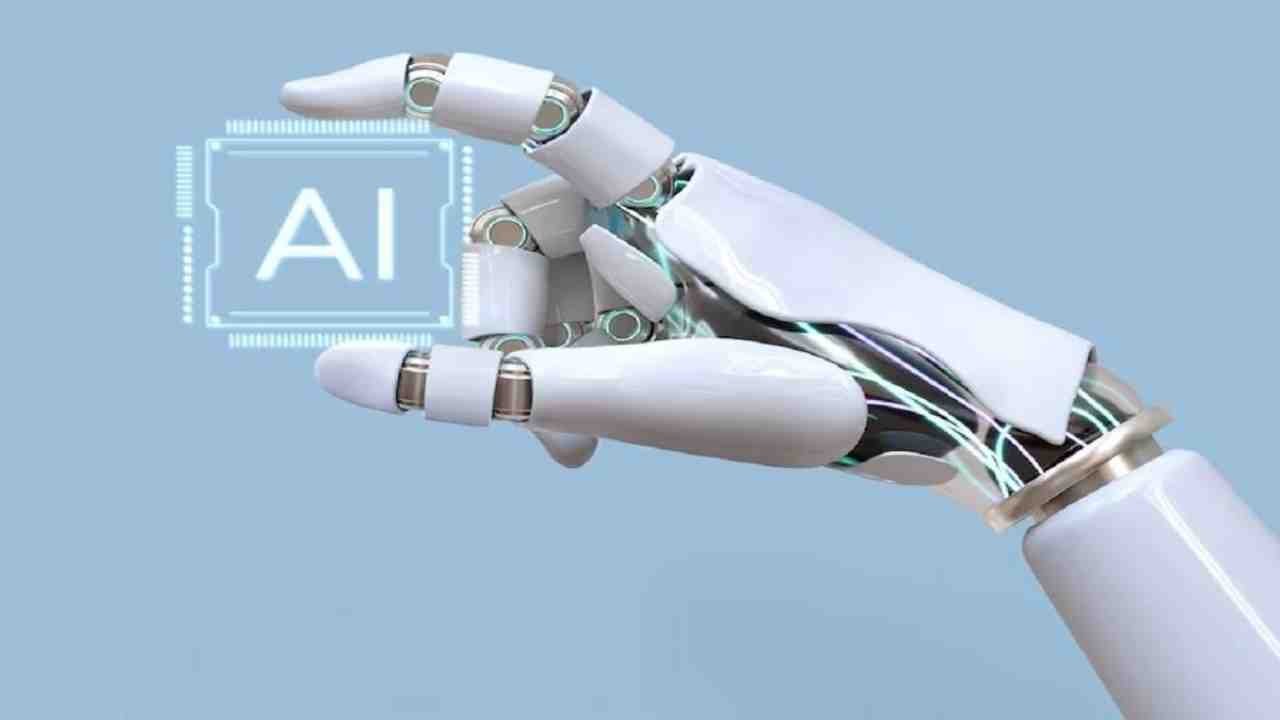Artificial Intelligence (AI) is undeniably one of the most transformative technologies of our time, poised to reshape industries, economies, and societies worldwide. Its potential to revolutionize the way we work and live is particularly pronounced in a country like India, which boasts a vibrant culture of innovation and a rapidly expanding tech ecosystem.

India’s tech scene has been gaining momentum over the past few decades, propelled by a skilled workforce, a thriving startup ecosystem, and government initiatives aimed at fostering digital innovation. From Silicon Valley giants to homegrown startups, India has become a hub for cutting-edge technological developments across sectors such as IT, biotech, e-commerce, and telecommunications.
In this dynamic landscape, AI stands out as a game-changer, offering unprecedented opportunities for efficiency, productivity, and innovation. With a population of over 1.3 billion people, India faces unique challenges in areas such as healthcare, agriculture, education, and governance. AI has the potential to address these challenges by automating routine tasks, analyzing vast amounts of data, and providing actionable insights to decision-makers.
Understanding the Landscape:
India’s optimism towards AI stems from a combination of factors. Firstly, the country boasts a robust pool of talent in STEM fields, producing skilled professionals who are driving innovation in AI development. Additionally, the government’s initiatives to promote digital literacy and foster a conducive environment for tech startups have further fueled enthusiasm for AI adoption.
Simplifying Workflows:
One of the most significant advantages of AI lies in its ability to automate tasks and streamline workflows. In India, where many industries grapple with inefficiencies and resource constraints, AI offers a ray of hope. From healthcare and agriculture to finance and manufacturing, organizations are increasingly turning to AI-powered solutions to optimize processes and boost productivity.
In the healthcare sector, AI-driven diagnostics and predictive analytics are revolutionizing patient care by enabling early detection of diseases and personalized treatment plans. Similarly, in agriculture, AI-powered drones and sensors are empowering farmers to make data-driven decisions regarding crop management, leading to higher yields and sustainable practices.
In India, the integration of Artificial Intelligence (AI) into various industries holds immense promise for simplifying workflows, overcoming challenges, and driving efficiency gains. Across sectors such as healthcare, agriculture, finance, and manufacturing, AI-powered solutions are transforming traditional processes, optimizing resource utilization, and enhancing productivity.
Healthcare Sector: In the healthcare sector, AI is heralding a paradigm shift in patient care delivery, diagnosis, and treatment. AI-driven diagnostics leverage advanced algorithms to analyze medical imaging data such as X-rays, MRIs, and CT scans with unparalleled accuracy and speed. This enables healthcare providers to detect abnormalities and diseases at early stages, facilitating timely interventions and improving patient outcomes. Moreover, AI-powered predictive analytics models can analyze patient data, including medical history, genetic information, and lifestyle factors, to identify individuals at high risk of developing certain conditions. By proactively identifying risk factors, healthcare professionals can devise personalized treatment plans and preventive strategies, thereby enhancing patient care and reducing healthcare costs.
Agriculture Sector: In the agriculture sector, AI is revolutionizing traditional farming practices by harnessing the power of data analytics, sensors, and automation technologies. AI-powered drones equipped with cameras and sensors can capture aerial imagery of farmlands, allowing farmers to monitor crop health, identify pest infestations, and optimize irrigation practices. By analyzing satellite imagery, weather data, and soil conditions, AI algorithms can provide actionable insights to farmers, enabling them to make data-driven decisions regarding planting schedules, fertilizer application, and crop rotation. This precision agriculture approach not only increases crop yields but also promotes sustainable farming practices by minimizing water usage, reducing chemical inputs, and mitigating environmental impact.
Finance Sector: In the finance sector, AI is driving innovation in areas such as risk management, fraud detection, and customer service. AI-powered algorithms analyze vast volumes of financial data in real-time, identifying patterns, anomalies, and potential risks with unprecedented accuracy. This enables financial institutions to proactively manage risks, optimize investment portfolios, and enhance regulatory compliance. Moreover, AI-driven chatbots and virtual assistants are transforming customer interactions, providing personalized recommendations, resolving queries, and streamlining service delivery. By automating routine tasks and enhancing decision-making processes, AI is enabling financial institutions to improve operational efficiency, reduce costs, and deliver superior customer experiences.
Manufacturing Sector: In the manufacturing sector, AI is revolutionizing production processes, supply chain management, and quality control. AI-powered predictive maintenance systems analyze equipment data in real-time, identifying potential faults and performance degradation before they lead to costly breakdowns or downtime. This proactive maintenance approach helps manufacturers optimize asset utilization, minimize unplanned downtime, and extend equipment lifespan. Moreover, AI-driven robots and automation systems are augmenting human workers, performing repetitive tasks with precision and efficiency. By integrating AI into manufacturing workflows, companies can achieve higher levels of productivity, quality, and agility, enabling them to respond swiftly to changing market demands and maintain a competitive edge.
Improving Outcomes:
Beyond simplifying work processes, AI holds immense potential to improve outcomes across various domains. For instance, in education, adaptive learning platforms leverage AI algorithms to personalize instruction based on individual student needs, thereby enhancing learning outcomes. In e-commerce, AI-powered recommendation engines analyze user preferences to deliver tailored product suggestions, driving sales and customer satisfaction.
The transformative power of Artificial Intelligence (AI) extends far beyond simplifying work processes; it holds the potential to significantly improve outcomes across various domains, driving positive change and enhancing societal well-being. From education and e-commerce to addressing pressing societal challenges, AI-driven innovations are reshaping the landscape and unlocking new possibilities for progress.
Education Sector: In the realm of education, AI is revolutionizing the way students learn and educators teach. Adaptive learning platforms leverage AI algorithms to analyze students’ learning patterns, preferences, and strengths, enabling the delivery of personalized instruction tailored to individual needs. By adapting content, pacing, and teaching methods to match students’ learning styles, adaptive learning systems foster deeper engagement, comprehension, and retention, ultimately enhancing learning outcomes. Moreover, AI-powered virtual tutors and educational chatbots provide students with on-demand support, feedback, and guidance, augmenting traditional classroom instruction and promoting lifelong learning.
E-commerce Industry: In the e-commerce sector, AI-driven recommendation engines are reshaping the online shopping experience, driving sales, and enhancing customer satisfaction. By analyzing vast amounts of user data, including browsing history, purchase behavior, and demographic information, AI algorithms can generate personalized product recommendations tailored to individual preferences and interests. These targeted recommendations not only facilitate product discovery but also increase conversion rates and customer loyalty. Moreover, AI-powered chatbots and virtual assistants streamline customer service interactions, providing personalized assistance, resolving queries, and offering product recommendations in real-time, thereby enriching the overall shopping experience.
Addressing Societal Challenges: Beyond commercial applications, AI is playing a pivotal role in addressing complex societal challenges such as poverty alleviation, environmental sustainability, and disaster management. AI-powered predictive modeling techniques analyze large datasets to anticipate and mitigate the impact of natural disasters, enabling timely evacuation efforts, resource allocation, and disaster response planning. Moreover, AI-driven solutions such as remote sensing, satellite imagery analysis, and environmental monitoring enable policymakers and organizations to monitor and manage natural resources, track deforestation, and combat climate change.
Furthermore, AI-powered social impact initiatives leverage natural language processing (NLP) and machine learning algorithms to analyze social media data, sentiment analysis, and public discourse, providing insights into community needs, public opinion, and emerging trends. This enables policymakers and non-profit organizations to design targeted interventions, mobilize resources, and address pressing social issues such as healthcare access, education inequality, and economic empowerment.
Challenges and Opportunities:
As India eagerly embraces the potential of Artificial Intelligence (AI) to drive innovation and economic growth, it is crucial to recognize and address the challenges that accompany its adoption. While AI offers immense opportunities for transformation, it also poses several complex challenges that require careful consideration and proactive measures.
Challenges:
1. Data Privacy and Security: One of the primary concerns surrounding AI adoption is the protection of sensitive data and ensuring user privacy. As AI algorithms rely heavily on large datasets for training and decision-making, there is a risk of unauthorized access, data breaches, and misuse of personal information. Addressing these concerns requires robust data protection laws, encryption protocols, and cybersecurity measures to safeguard against potential threats and vulnerabilities.
2. Algorithmic Bias and Fairness: AI systems are susceptible to bias, reflecting the biases present in the data used to train them or the algorithms themselves. This can lead to discriminatory outcomes, exacerbating existing social inequalities and perpetuating systemic biases. Mitigating algorithmic bias requires transparency, accountability, and fairness in AI development processes, including rigorous testing, validation, and ongoing monitoring to detect and address biases.
3. Job Displacement and Reskilling: The widespread adoption of AI technologies has the potential to automate routine tasks and displace jobs in certain industries, leading to unemployment and economic disruption. Addressing the impact of job displacement requires proactive measures to reskill and upskill workers, enabling them to adapt to changing job roles and transition to new employment opportunities created by AI adoption. Government initiatives, educational programs, and workforce development strategies play a crucial role in facilitating this transition and ensuring inclusive growth.
4. Ethical AI Development: Ethical considerations are paramount in the development and deployment of AI technologies, particularly concerning issues such as accountability, transparency, and fairness. Ensuring that AI systems are designed and implemented in alignment with ethical principles requires a multidisciplinary approach involving stakeholders from diverse backgrounds, including policymakers, technologists, ethicists, and civil society organizations. Establishing ethical guidelines, frameworks, and best practices for AI development can help mitigate ethical risks and promote responsible AI innovation.
Opportunities:
1. Innovation and Economic Growth: Despite the challenges, India’s optimistic outlook towards AI presents abundant opportunities for innovation, entrepreneurship, and economic growth. By investing in AI research, development, and infrastructure, India can foster a thriving ecosystem of AI startups, attract foreign investment, and stimulate job creation in high-tech industries. Moreover, AI-driven innovation has the potential to drive productivity gains, enhance competitiveness, and catalyze digital transformation across sectors, positioning India as a global leader in AI innovation.
2. Societal Impact and Inclusive Development: AI has the potential to address some of India’s most pressing societal challenges, including healthcare access, education inequality, and poverty alleviation. By leveraging AI technologies such as telemedicine, personalized learning platforms, and financial inclusion tools, India can improve access to essential services, empower marginalized communities, and promote inclusive development. Moreover, AI-driven solutions can enhance the efficiency and effectiveness of public service delivery, enabling governments to better meet the needs of their citizens and drive positive social impact.
3. Global Collaboration and Knowledge Sharing: India’s optimistic outlook towards AI presents opportunities for collaboration and knowledge sharing with global partners, fostering exchange of ideas, expertise, and best practices in AI research and innovation. Collaborative initiatives such as joint research projects, academic partnerships, and technology transfer agreements can accelerate AI development, facilitate cross-border collaboration, and harness the collective intelligence of the global AI community to address common challenges and achieve shared goals.
Conclusion:
In conclusion, India’s optimism about AI’s potential to simplify work and improve outcomes is grounded in its technological prowess, entrepreneurial spirit, and commitment to progress. By harnessing AI-driven innovations, India can overcome challenges, unlock new opportunities, and emerge as a global leader in the AI landscape. As we navigate the complexities of the digital age, let us embrace AI as a tool for positive change, driving societal progress and human flourishing.











